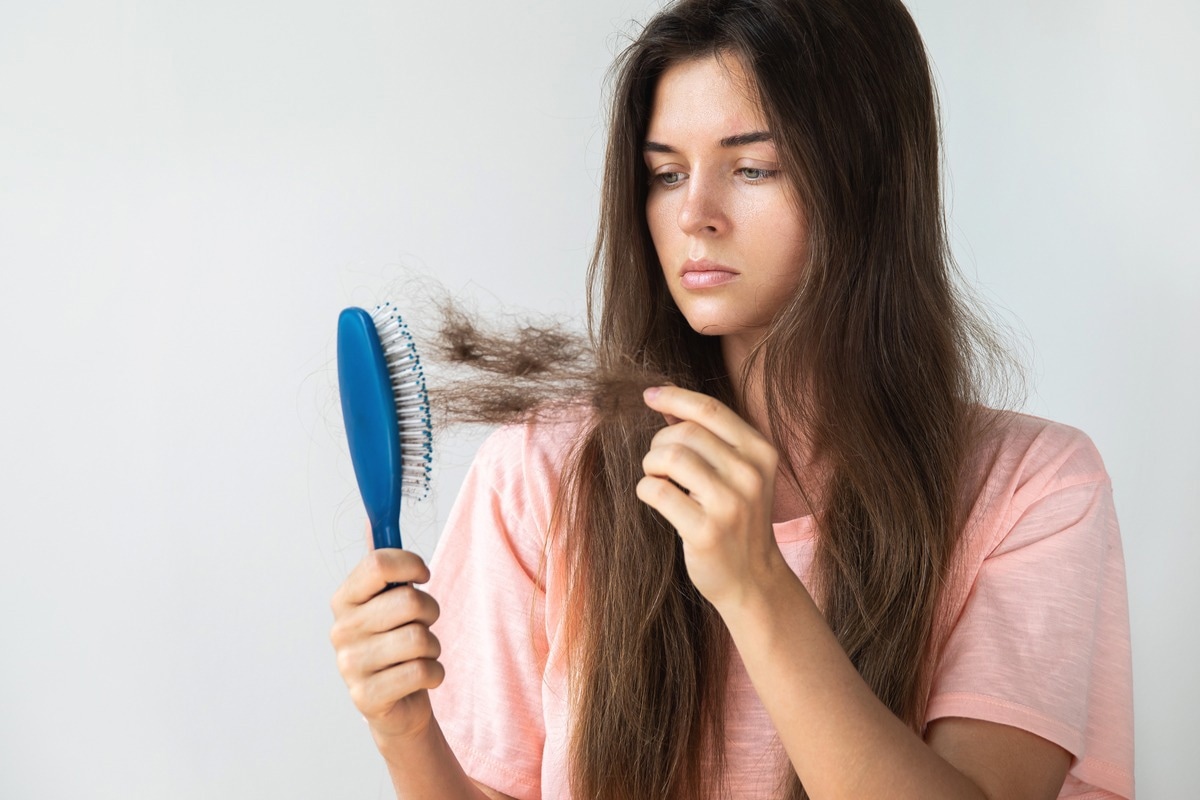Little is known about the possibility of hair loss in patients recovering from coronavirus disease 2019 (COVID-19). Though this is a minor loss, it feels devastating to many individuals and has been studied by several researchers.
 Study: Characteristics of Hair Loss after COVID-19: Systematic Scoping Review. Image Credit: BLACKDAY/Shutterstock
Study: Characteristics of Hair Loss after COVID-19: Systematic Scoping Review. Image Credit: BLACKDAY/Shutterstock
Introduction
COVID-19 is marked by its plethora of manifestations, varying widely between individuals. Hair loss is fairly common after acute infections or autoimmune diseases. Earlier diseases caused by coronaviruses, such as the outbreaks of severe acute respiratory syndrome and the Middle East respiratory syndrome (SARS and MERS, respectively), have also been associated with alopecia.
In COVID-19, it is reported to affect about one in five people, covering a wide range of categories – telogen effluvium (TE), worsening of male pattern baldness, and alopecia areata (AA), to mention a few.
The authors of this paper explored the reversibility, duration, association with severity, and possible causes of COVID-19-associated hair loss. They looked at all eligible papers published on the subject, including randomized controlled trials (RCTs), case-control studies, and prospective or retrospective cohort studies.
Findings
The search brought up 26 articles, 17 of which were case reports and the rest observational studies. Of the latter, most lacked a comparison group. Five of six observational studies looked at TE, when large numbers of hair follicles enter the resting phase in response to stress or other disorders.
These researchers often found that TE began at 45-50 days after the onset of the infection, and resolved spontaneously in the majority of cases. Eight of these studies suggested that TE was correlated with COVID-19.
One large study from Korea retrospectively examined AA in COVID-19, finding no correlation between the two. Most of these were small studies.
Coming to the case reports, most patients with hair loss were female, and TE was the predominant form, reported in three-quarters of the cases. AA was found in 5%. Most patients had hair loss within three months of diagnosis.
Among 20 patients whose outcome was described, almost all said they recovered from the hair loss at a median of five months. Almost 40 patients described their treatment, mostly with topical lotions containing clobetasol or minoxidil, and one with low-dose systemic corticosteroids.
Two patients had hydroxychloroquine or oral minoxidil. About one in five were not medically treated, except for reassurance.
Implications
This first scoping review shows that hair loss does occur in a proportion of COVID-19 cases, and is mostly reversible. Most patients take a few weeks to months to recover hair growth. No clear associations were made with COVID-19 severity, but female patients seemed more at risk for alopecia with this condition.
Since hair loss was mostly self-reported and confirmed clinically, these studies must be followed up with more detailed and validated research.
The incidence of hair loss in long Covid patients remains unknown, since long-term follow-up was lacking. Theories of the cause include the severe inflammation in some COVID-19 patients, with high levels of cytokines like interleukin- (IL) 6, which suppresses the elongation of the hair shaft and the proliferation of the hair follicle. However, most patients with hair loss seem to have had only mild disease.
Estrogen and progesterone, the female hormones, may play a role in hair loss during COVID-19, as most such patients were female. These have anti-inflammatory effects, with estradiol acting on the hair follicles to enhance their growth and improve the hair cycle. Progesterone may reduce the conversion of testosterone to its active form, which is connected to alopecia.
Both these hormones have immunomodulatory effects. They are being studied for their potential use in COVID-19 treatment.
Acute COVID-19 may alter the balance of these hormones or cause a reduction in their levels, leading to female-dominance hair loss. Further studies will be required to validate this hypothesis, and to understand other pathophysiologic mechanisms.
A small number of patients had long-term alopecia without any clear underlying disease process being identifiable. Clinical awareness of this symptom probably needs to rise, especially since only the most severe cases may have presented to the clinician.